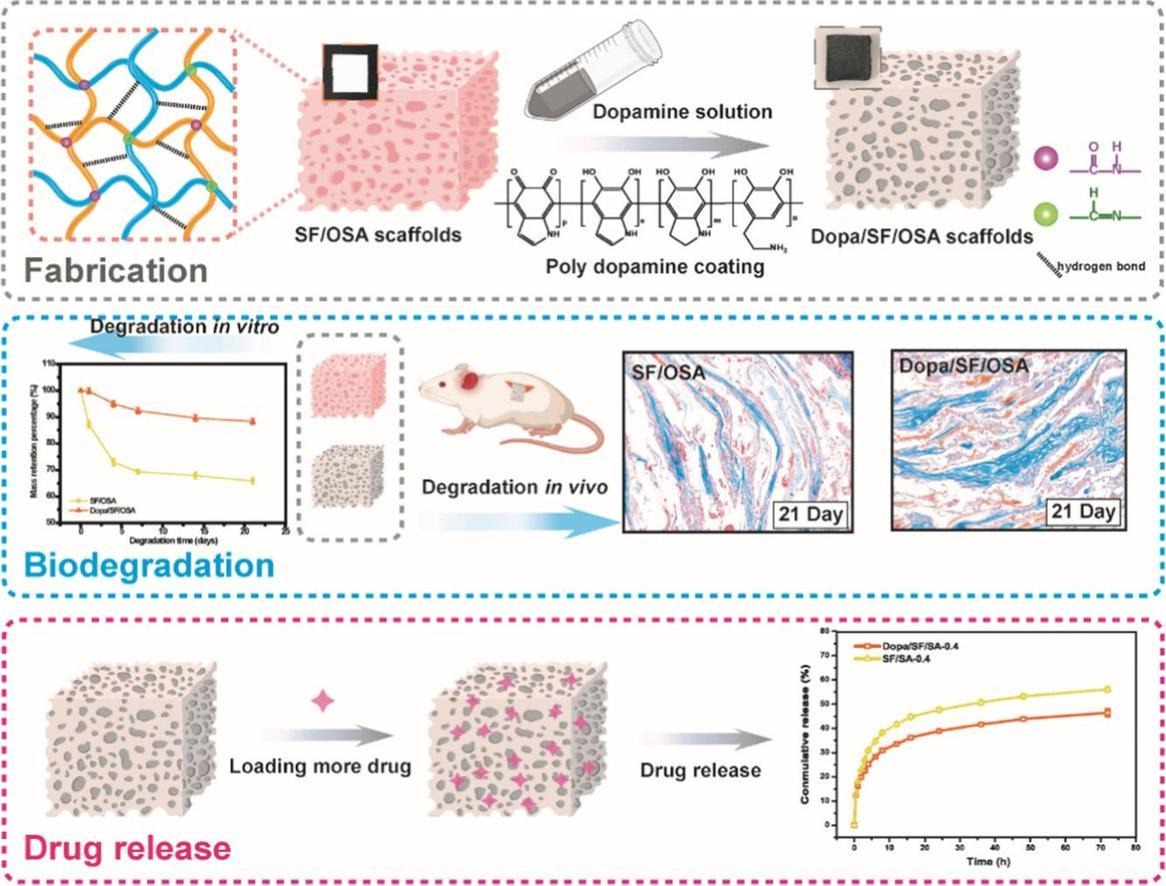
A research team from China has developed a biodegradable composite material that looks like a band-aid and can rebuild the function of the skin layer, promote wound healing and reduce scars. The study was published in the International Journal of Biological Macromolecules.
The material is made of natural polymer materials such as sodium alginate and silk fibroin. Through the micro-nano layered structure at the patient's wound, it will carry skin cells to "climb" to each layer of the skin when applied, promoting full-thickness skin repair and regeneration.
Such a process helps to grow an almost natural skin, which is different from artificial skin and has normal functions such as touch and pain perception.
During the process, the band-aid like material can also add specific "ingredients" according to the needs of wound recovery. For example, if the patients want to restore the hair follicles and nerve sensory functions, they can load stem cells; if the patients want to inhibit bacteria and anti-inflammatory effects, they can add probiotics.
After completing its mission, the material can be absorbed or excreted by the human body in the form of metabolites such as amino acids, carbon dioxide and water.
Researchers said it is suitable for the repair of oral and maxillofacial skin and mucosal defects, burns and traumatic skin defects, refractory diabetic wounds, as well as pressure ulcer skin tissue defects.
This study will be useful for understanding the possible biodegradation mechanism of the composites and designing effective biodegradable implant materials for sustained drug release, providing a new route for repairing soft tissue injury in the future, according to researchers.
The trio will conduct a series of experiments in fields such as life science, fluid physics, combustion science and materials science. Notably, this is the first time that fruit flies have been taken on a Chinese space mission as experimental subjects. What made scientists choose fruit flies? What experiment will they undergo?
